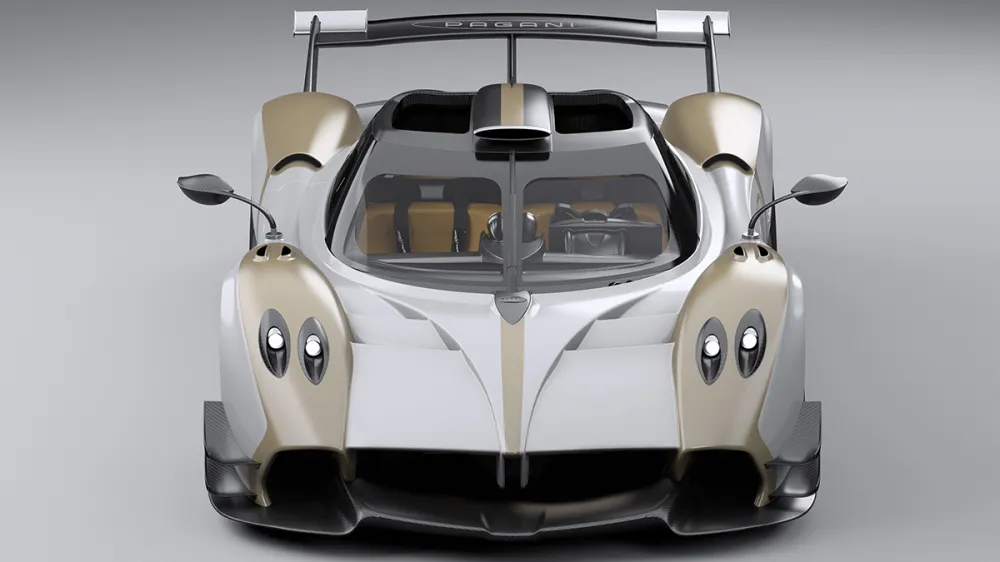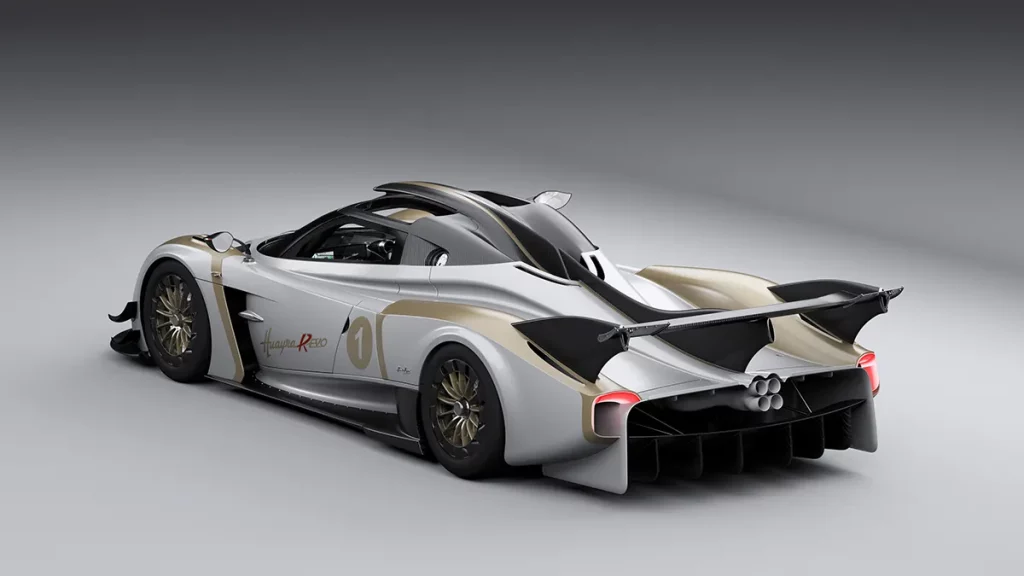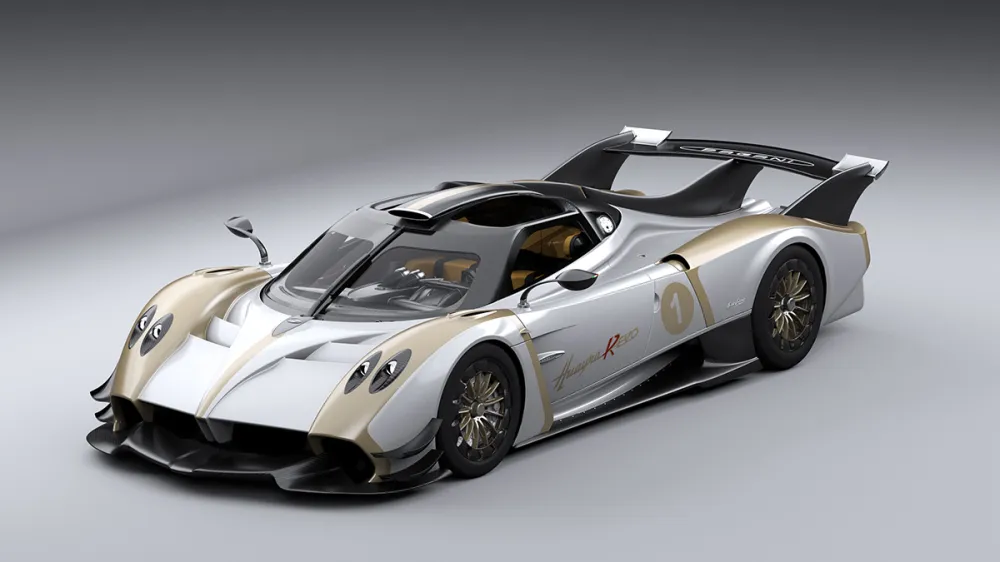The vehicle’s revised body and pop-out roof panels combine to produce dramatically more downforce.
There’s no such thing as enough as far as Pagani’s concerned.
The Italian hypercar maker has just unveiled its latest model, the Huayra R Evo. The vehicle has a new long-tail design and a revised V-12 that just might make it the marque’s most extreme build yet.
As the name may have given away, the new model is the latest iteration—or evolution, you might say— of the track-only version of the brand’s second hypercar, the Huayra R. One of the biggest differences between the two vehicles will be apparent immediately. Pagani variants, like so many other super and hypercars, can blend together, but the Huayra R Evo has a dramatically stretched body. You’ll notice the change up front, where the splitter has been extended four inches, but it’s most apparent in the new long-tail rear that adds 7.5 inches of length. There’s also a new central fin to provide additional support to the giant rear wing. These changes mean the new vehicle looks like something of a mashup of the Huayra R and the Huayra-based Codalunga (which is Italian for “longtail”).
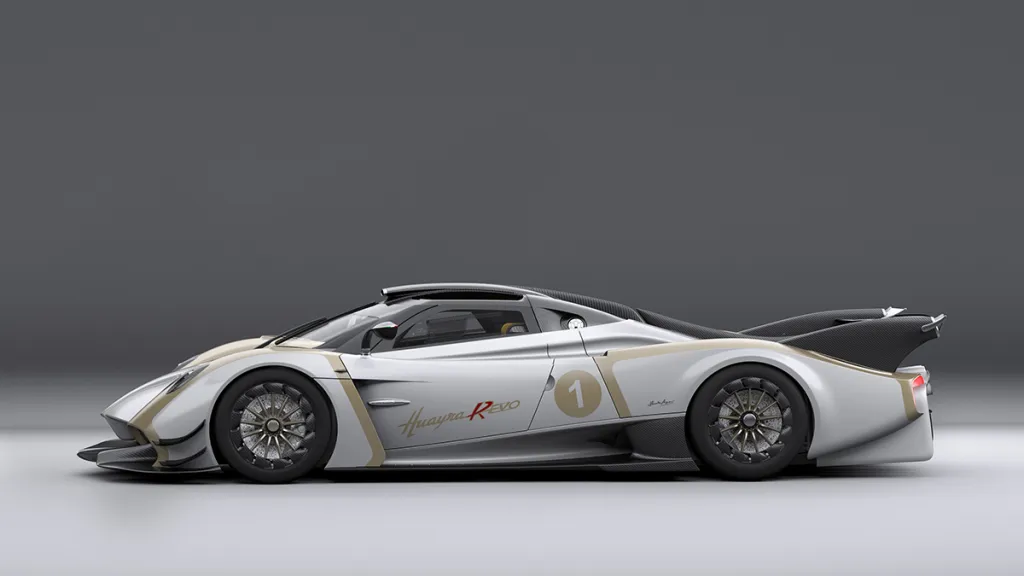
The Huayra R Evo’s new elongated body may turn heads, but it also helps boost aerodynamic performance. The altered shape produces 45 percent more downforce than its predecessor, allowing the car to stick to the track at high speeds. The vehicle also features two pop-out roof panels that increase downforce by an additional five percent when removed.
Modifications weren’t limited to the hypercar’s body, though. It’s also been equipped with an updated version of the Huayra’s bespoke Mercedes-AMG-developed 6.0 liter V-12. The new mill is called the V12 R-Evo and produces 900 hp and 567 ft lbs of torque, all of which is routed to the rear wheels via a six-speed sequential gearbox. The changes to the engine have boosted output by 50 hp and 14 ft lbs of torque. Thanks to the added oomph, the car can now hit a top speed of 218 mph out on the track. Even the fastest laps will feel smooth, too, thanks to a double-wishbones suspension with electric shocks. Despite these mechanical changes, the car tips the scales at just 2,337 pounds.
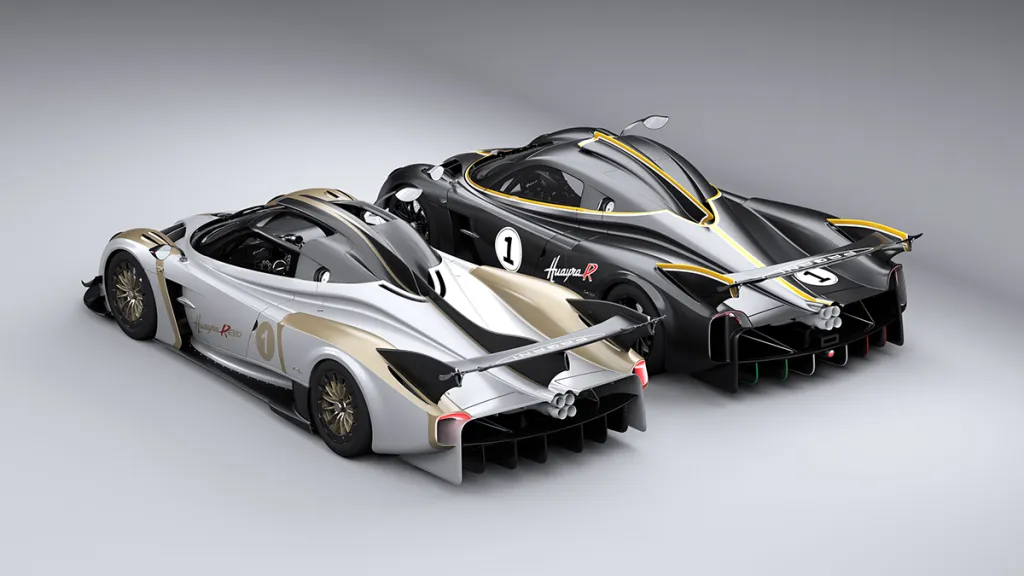
Pagani has not announced a price for the Huayra R Evo, though we’d guess it costs a fair bit north of the original Huayra R’s $3 million starting price. It also hasn’t said how many cars will be built. The Huayra R Evo is part of the Arte in Pista curated track event program, though, so examples figure to be scarce.
